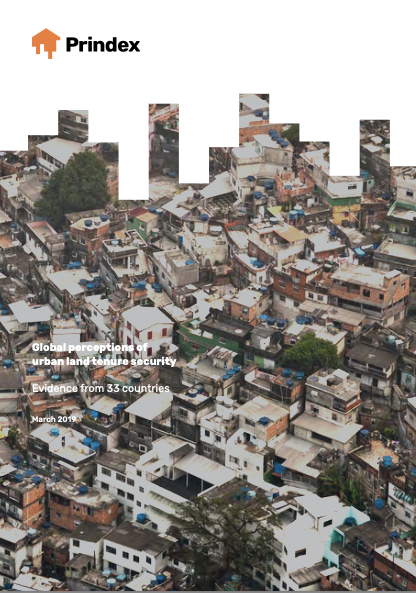Resource information
This report uses unique household survey data from 24,870 respondents in 33 countries in Latin America, Europe, Africa and Asia to investigate correlations between demographic, economic and spatial characteristics and perceived tenure insecurity.
We find that: (1) urban and rural dwellers have particularly large differences in tenure insecurity levels in certain countries; (2) renters are at considerable risk of tenure insecurity; (3) insecurity in urban areas is also linked to income, age and household size; and (4) legal documentation does not necessarily correspond with de facto tenure security, especially when it comes to feelings of security among renters. Overall, the results suggest that the parallel existence of formal and informal land markets is an incontrovertible reality in rapidly urbanising markets, particularly when it comes to securing the tenure of poor or young people as well as people living in rental accommodation.

